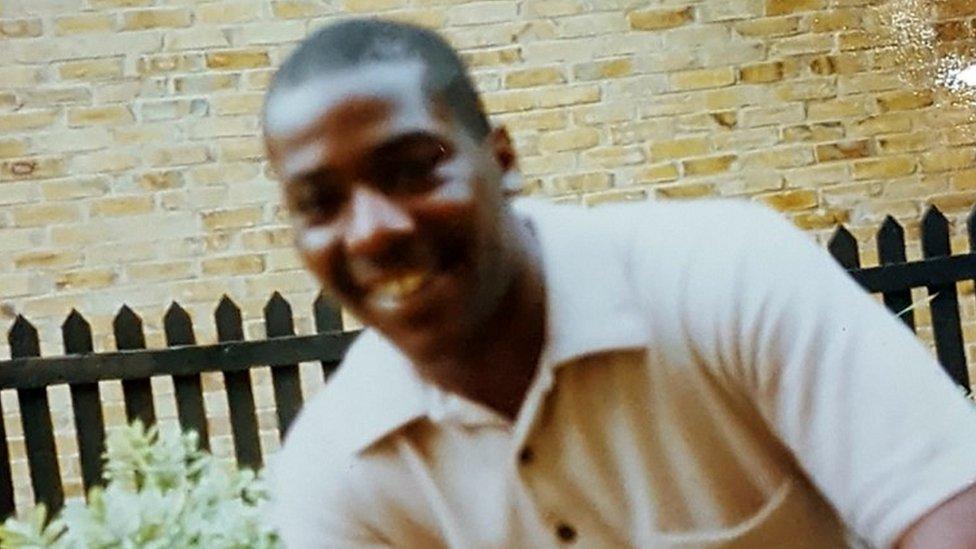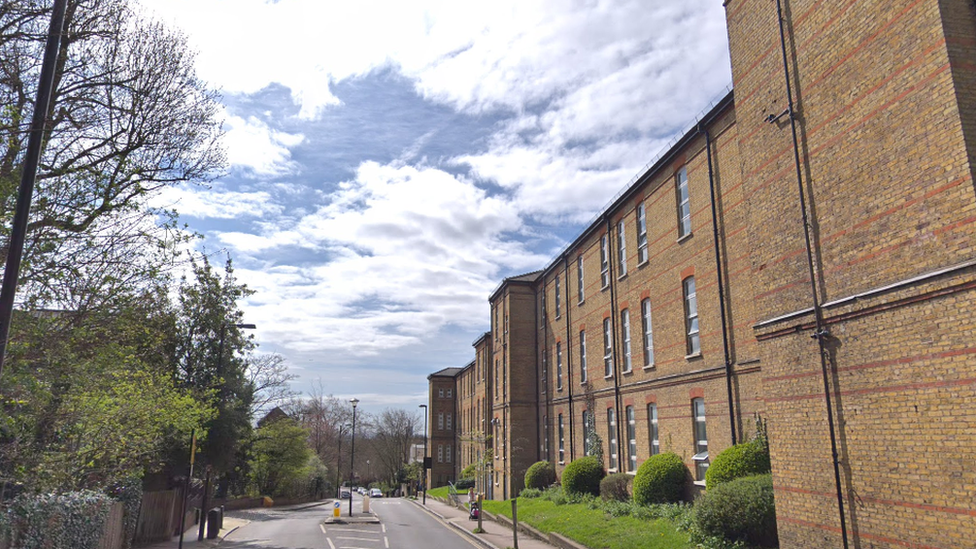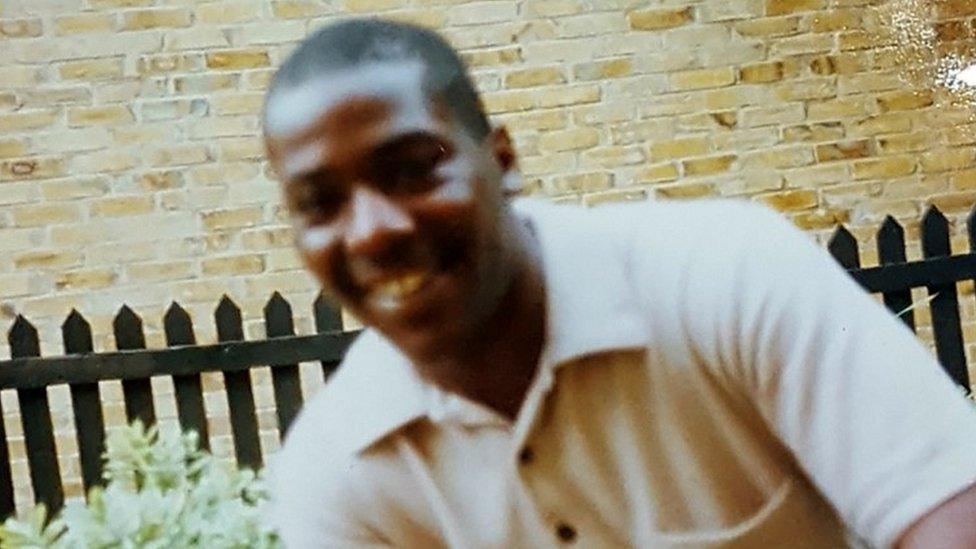Highgate mental health unit death: Killer detained indefinitely
- Published

Carl Thorpe was killed days after he arrived at Highgate Mental Health Centre
A man who beat, strangled and set alight a fellow patient at a secure mental health unit in north London has been detained for an unlimited time.
Jordan Bramble, 22, killed Carl Thorpe, 46, at Highgate Mental Health Centre even though he was supposed to have been kept under constant watch.
Judge John Hillen QC said both men had been "ill-served" by staff.
He ordered that Bramble be detained under the Mental Health Act for an unlimited amount of time.
An Old Bailey jury had previously found that the defendant, who has paranoid schizophrenia and a history of violence, had killed Mr Thorpe.
The 46-year-old victim had been admitted to the mental health centre on 1 February, two days before the killing.
He had been punched and kicked in the head before being strangled and his body set alight, the court had heard.

Jordan Bramble was supposed to have been kept under constant watch in the unit
Judge Hillen said staff on duty had been supposed to be keeping those on the ward safe but "they failed to do so".
"Over several days the jury listened to a catalogue of instances of poor management, sloppy procedures, failure to keep records and even the falsification of records," he said.
'Safety compromised'
He said Bramble "should not have been let out of the sight of a care assistant at any time" but CCTV shown in court showed him "wandering unsupervised around the ward", which he was not allowed to do.
The judge added that had the defendant been supervised as required, Mr Thorpe, 46, would probably not have died that day.
In a statement, Mr Thorpe's aunt Lenora Thorpe said he had been "a vulnerable individual and he was supposed to be looked after, but his safety was compromised on so many levels".
Camden and Islington NHS Foundation Trust previously told the BBC that a "comprehensive disciplinary investigation" had been carried out following the death, "which resulted in two nurses and two healthcare assistants being dismissed".
"This was an isolated incident of completely unacceptable failures in professional practice and conduct and we are deeply sorry that we did not provide a safe and protective environment to these vulnerable patients in our care," they said.
- Published25 November 2020

- Published18 November 2020
